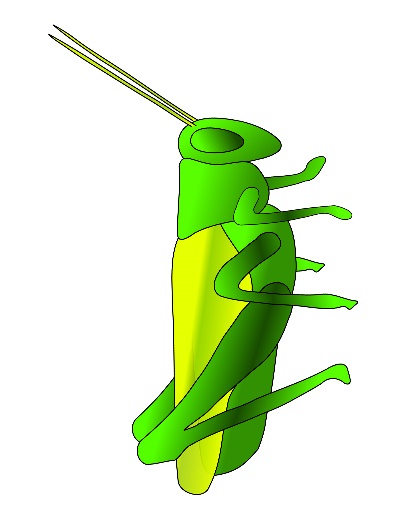What´s your favorite story?
Valoración de la comunidad:
Última Actualización:
6 de Febrero de 2025 a las 15:33
What´s your favorite story?
Aprendizaje esperado: interpreta el contenido de un cuento.
Énfasis: explora fragmentos de cuentos infantiles ilustrados de distintos géneros.
¿Qué vamos a aprender?
Do you like stories? ¿Te gustan los cuentos?
Fine! ¡Bien! ¿Recuerdas los cuentos que escuchabas cuando te ibas a dormir cuando eras más pequeña o pequeño?
Or what about the ones you have listened to in school from your teachers? ¿O los que te han contado tus maestras y maestros en la escuela?
Which one is your favorite? ¿Cuál es tu favorito?
Today, we will listen to some fragments of them. El día de hoy escucharemos algunos fragmentos de ellos.
So, to begin with, let’s play a guessing game. Entonces, para iniciar los invito a jugar adivinanzas. Do you like riddles? ¿Les gustan las adivinanzas?
¿Qué hacemos?
Se trata de adivinar el animal del cuento.
“Which animal am I?” ¿Qué animal soy?
So, let´s start. Demos inicio al juego.
Kids, pay attention to these descriptions.
Niñas y niños pongamos atención a las descripciones.
I have a flat face. Tengo la cara plana.
I eat insects. Como insectos.
I´m more active at night. Soy más activo por la noche.
Also, I can turn my head 270 degrees.
También puedo girar mi cabeza hasta 270 grados.
Which animal am I? ¿Qué animal soy?
¿Eres el búho?

Yes, I’m an owl. Sí, yo soy un búho. Well done! ¡Bien hecho!
I am an insect. Soy un insecto.
I can jump very high. Puedo saltar muy alto.
I can make a chirping noise and people say I sing. Puedo emitir un sonido, el cual las personas dicen que es un canto.
Which animal am I? ¿Qué animal soy?
¿Un grillo?

Well done! ¡Bien hecho! I am a cricket. Yo soy un grillo.
I am an insect. Soy un insecto.
I have a big head. Tengo una cabeza grande.
I live almost everywhere, except in cold weather. Vivo casi en todos los lugares excepto en clima frio.
I´m famous for being a hard-working animal. Soy famoso por ser un insecto muy trabajador.
Which insect am I? ¿Qué insecto soy?
¡Una hormiga!

Good job, buen trabajo. I´m an ant. Soy una hormiga.
I´m a big animal. Soy un animal grande.
I can smell and hear very well but, I have a poor sight.
Puedo olfatear y escuchar muy bien, pero mi vista no es tan buena.
I have horns. Tengo cuernos.
I live in Alaska, Canada and in the North of Europe.
Vivo en Alaska, Canadá y el norte de Europa.
Which animal am I? ¿Qué animal soy?
¿Eres un alce?

Yes, you got it. Sí, lo lograste. I´m a moose. Soy un alce.
Good job kids. Buen trabajo niñas y niños estos animales son los personajes de nuestro cuento titulado, ¿Por qué canta el grillo? What if we listen to a fragment from this story? ¿Qué les parece si les comparto un fragmento de este cuento?
Listen and pay attention. Escuchemos y pongamos atención.
Why the cricket chirps? ¿Por qué canta el grillo?
A long time ago. Hace mucho tiempo.
Before there were seasons, the cricket could fly. Cuando no existían las estaciones del año, el grillo podía volar.
He flew higher than the falcon. Él volaba más alto que un halcón.
The cricket had flown almost all over the world. El grillo había volado casi alrededor de todo el mundo.
He flew to the East. Voló hacia el Este.
Then he flew to the West. Después voló al Oeste.
And then, he flew to the South. Y después voló al Sur.
But, he had never flown North. Pero nunca había voladó al Norte.
One of its friends, the ant tried to warn him that he should not try it. Uno de sus amigos la hormiga, trataba de advertirle que no lo intentara.
It’s very cold in the North. Hace mucho frío en el Norte.
The cricket, however, did not listen, because crickets do whatever they want. El grillo ni la escuchó, porque los grillos hacen, lo que ellos quieren.
And he set off for the North that night. Y esa noche partió hacia el Norte.
The cricket landed next to a pine tree as the sun began setting. El grillo aterrizó al lado de un pino, al salir el sol.
There was snow on the trees, on the ground, there was snow everywhere. Había nieve, en los árboles, en el suelo, por todos lados.
The Moose came walking over to him very slowly. El alce llegó caminando hacia el grillo muy lentamente.
Ohhhh, Hello, said the moose. Hola dijo el alce.
Let´s get away from here, nighttime is coming, and it will be colder. Vamonos de aquí, al llegar la noche el clima será más frio.
The cricket did not listen, because crickets do whatever they want. El grillo no hizo caso, porque los grillos hacen lo que quieren.
Then, an owl came flying over to the same branch. Después un búho llegó a la misma rama.
You should find shelter from the cold night, said the owl. Deberías buscar alojamiento, para el frío de la noche, dijo el búho.
Kids, do you think the cricket listened to the owl´s advice? ¿Niñas y niños, creen que el grillo haya seguido el consejo del búho?
Did he look for shelter? ¿Habrá buscado refugio?
¿Les gustó el fragmento de esta historia? Remember: Why the cricket chirps by Daniel Errico is the name of this tale. Recuerden: El cuento se llama ¿Por qué canta el grillo? de Daniel Errico.
Now, let´s listen to a fragment from another story? escuchemos un fragmento de otro cuento.
What if you help me to tell the story, and the kids will find out which one it is? Qué te parece si me ayudas a contarla, y las niñas y los niños nos ayuden a descubrir, ¿Cuál cuento es?
There was once a little town near the forest. Había una vez un pequeño pueblo cerca del bosque.
One day two travelers came along. Un día llegaron dos viajeros.
They were tired and hungry. Ellos estaban cansados y hambrientos.
One traveler said to the other: surely someone here can share a bit of food. Un viajero le dijo al otro: seguramente alguien aquí puede compartirnos un poco de comida.
They knocked on a door, and when it was opened, a woman asked: What do you want? Ellos tocaron una puerta y cuando esta se abrió, una mujer preguntó: ¿Qué es lo que quieren?
One of the travelers answered: We are hungry, do you have any food? Uno de los viajeros dijo, tenemos hambre, ¿Tendrán algo de comida?
The woman said: no and closed the door. La mujer contestó: no y cerró la puerta.
The travelers knocked on another door, a boy asked. What do you want? Los viajeros tocaron en otra puerta y un niño les preguntó: ¿Qué es lo que quieren?
One traveler answer: we are hungry, do you have any food? Un viajero contestó:
Estamos muy hambrientos, ¿Tendrás algo de comida?
The boy replied There´s no food here and closed the door. El niño respondió: No hay comida aquí y cerró la puerta.
The travelers knocked on more and more doors and the answer always was the same I don´t care, I won’t share, there´s no food here. Los viajeros tocaron y tocaron más puertas y la respuesta siempre fue la misma, No me importa, No voy a compartir, No hay comida aquí.
Nosection wanted to help them. Nadie los quería ayudar.
One of the travelers said, If there isn´t food here in this little town, it´s because the people who live here are in greater need than we are. Uno de los viajeros dijo: Si no hay comida aquí, en esta pequeña ciudad, es porque las personas que viven aquí están más necesitadas que nosotros.
We should make them our magical soup. Deberíamos hacer nuestra sopa mágica.
Does anyone in this town has a big pot, we will make the most delicious soup anyone ever tasted. ¿Alguien en esta ciudad tendrá una cacerola gigante? Nosotros haremos la sopa más deliciosa que nunca alguien antes haya probado.
¿Cómo? ¿Hasta aquí?
Of course! It’s only a fragment. ¡Por supuesto! es sólo un fragmento.
El cuento se llama: La sopa de piedra y sopa de piedra en inglés se dice: Stone soup.
By the way, could you imagine which vegetables they grew in the town of the story? Por cierto, ¿Pueden imaginarse las verduras que cultivaban en el poblado del cuento?
Tal vez zanahorias, papas.
I’ll share with you some vocabulary about the vegetables they grew there. Les compartiré vocabulario de algunas verduras que cultivaban.
They grew corn in that town. Ellos cultivaban maíz en ese poblado.
They grew potatoes in that town. Ellos cultivaban papas en ese poblado.
They grew carrots in that town. Ellos cultivaban zanahorias en ese poblado.
They grew peas in that town. Ellos cultivaban chícharos en ese poblado.
They grew celery in that town. Ellos cultivaban apio en ese poblado.
They grew red tomatoes in that town. Ellos cultivaban tomates rojos, jitomate en ese poblado.
Excellent!, ¡Excelente! eso fue todo por el día de hoy, espero que hayan disfrutado mucho la clase.
Esperamos que hayan anotado los nombres de los cuentos. ¿Cómo crees que terminan estas historias? Trata de imaginar su desenlace y si tienes la oportunidad, coméntalas con alguien en casa. En dos programas más te diremos cómo terminan.
Excellent! ¡Excelente!
Girls and boys see you soon. Niñas y niños, nos vemos pronto, Take care of yourself and your family. Cuídense y cuiden a su familia.
Esperamos hayan aprendido mucho y que se hayan divertido tanto como nosotros. No se les olvide que pueden ver esta clase las veces que quieran a través de internet.
El reto de hoy:
Recuerden que es muy importante que todo lo que vimos hoy lo sigan poniendo en práctica, ese es tu reto practicar diariamente lo aprendido.
Bye! ¡Adiós!
Si te es posible consulta otros libros y comenta el tema de hoy con tu familia.
¡Buen trabajo!
Gracias por tu esfuerzo.


Login to join the discussion